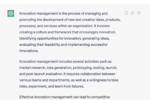
Advances in technology change the way consumers search and shop for products. Emerging is the trend of home-shopping devices such as Amazon’s Alexa and Google Home, which allow consumers to search or order products. We investigate how consumer brand and technology preferences may interact with the functionalities of technology-enabled shopping (TES) devices to determine the channel structure and market competition.…Read More
















